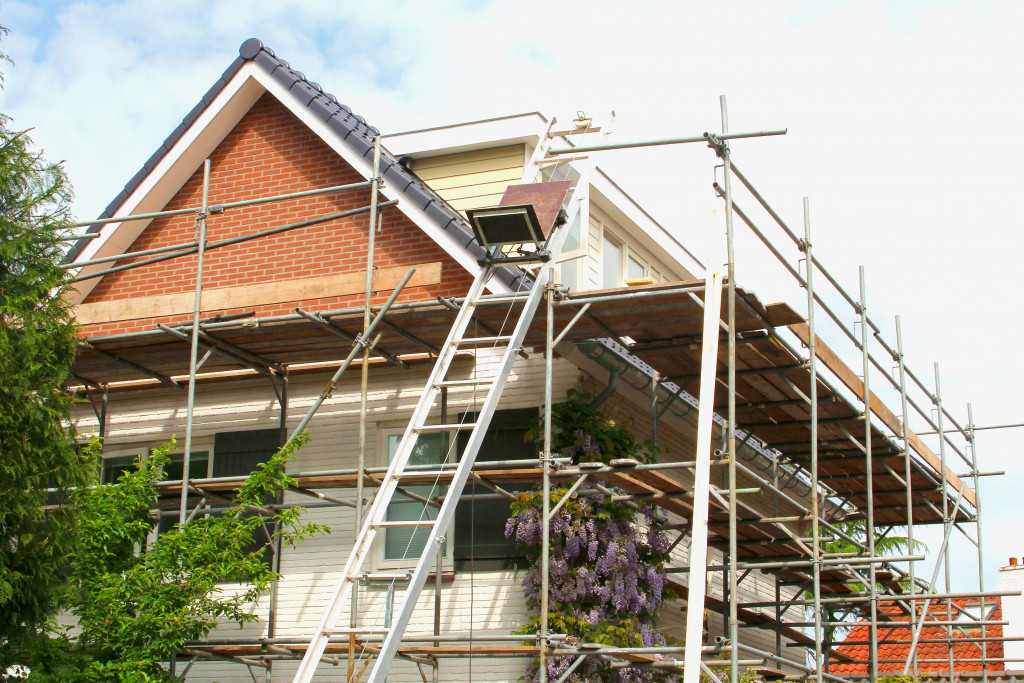Homeowners should start investing in renovations and additions that will make their houses resilient to powerful hurricanes. For years, climate change experts have been warning about more dangerous and more frequent extreme weather events. Recently, these predictions have been proven. The United States have been experiencing devastating wildfires, droughts, and, of course, hurricanes.
When these extreme weather events happen, they leave behind destruction. Hurricane Harvey, considered the most significant tropical cyclone rainfall event in the nation’s history, was estimated to cost $125 billion in damages. But, it was only second to the $161 billion cost from Hurricane Katrina.
Homeowners need to prepare themselves when the subsequent storms arrive. As a homeowner yourself, you need to make sure your property and the people in it are protected from extreme weather events caused by climate change.
Change the Windows and Doors
The windows are one of the most vulnerable areas of the house. A strong wind can knock it out, destroy the glass, and endanger the safety of everyone inside. Standard wooden doors, too, do not protect the house against hurricanes.
It is ideal to invest in high-impact windows with heavy frames that will not shatter or send projectiles to the people indoors. Moreover, these types of windows can prevent water from coming inside the house.
Homeowners now see the value in steel storm doors that add security from environmental elements such as rain and human intruders. It is a relatively inexpensive addition to any house because it effectively creates another layer of protection from extreme weather events. You mustn’t forget about your garage doors, as they’re the most prominent point of entry into your home. Choose a heavy-duty, impact-rated garage door to deter home invaders and keep your family and possessions safe inside.
In addition, experts recommend caulking around windows and doors to ensure that rainwater does not enter the house.

Go for Wind-Resistant Roof
During hurricanes, it’s not uncommon to see roofs getting blown off by strong winds. It happens a lot, but you can prevent this by installing high-impact roofs.
Steel is the most robust roofing material out there. It can resist wind gusts of up to 140 miles per hour. In the event of a hurricane, strong wind can’t easily blow off steel roofs. However, attach steel hurricane clips to reinforce the connection between the rooftop and the house for additional protection.
Additionally, homeowners should consider adding an escape hatch to the roof. In case of flooding, an escape hatch will make it easier for residents to go out to the house’s highest point (the roof) and call for help.
Mind the Landscaping
Landscaping can protect a house from a hurricane. Often, the dangers posed by storms involve things that are within the vicinity of your home. In strong winds, for example, big trees can be uprooted and turned over. If your house is located right beside a tree, you are at risk of being crushed. In extreme weather, even big branches can destroy your home.
That’s why it’s important to prune trees and bushes with or without a storm regularly. Don’t let branches go over the roof of the house or grow near enough to a window. Keep trees and bushes at a safe distance away from your home.
Homeowners should also consult professional landscapers about flood-proofing their yards. It’s possible to control and redirect water runoff by adding slopes, planting a rain garden, or building barriers and prevent water damage to your home. Solutions depend on the specific characteristics of the landscape. It’s best to speak to an expert to see which strategy would work best on a particular home.
Protect the HVAC
A home’s heating, ventilation, and air conditioning (HVAC) system is valuable. You should take extra precautions to protect your home’s HVAC from extreme weather events.
During hurricanes, HVACs incur some of the most expensive repairs and replacements. Homeowners should schedule regular checks and maintenance to ensure that their HVAC is performing as it should be. They should also remove any foliage or loose items that can come into contact with the HVAC.
Moreover, remember to strap down your HVAC or enclose your HVAC in a protective cage to prevent it from becoming loose or dislodged during storms.
Hurricanes can be unpredictable, but if people are unprepared for them, they can cause great destruction to life and property. As scientists warned, stronger storms will likely make landfall in the United States. American homeowners should begin their preparations by making their homes resilient to hurricanes as much as possible.

